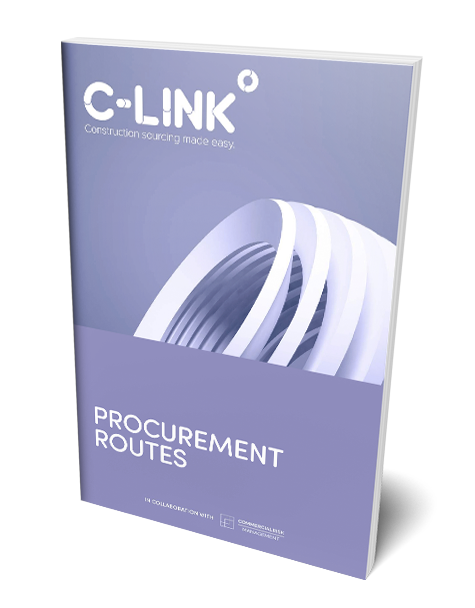Bringing your construction team into the procurement process

- blog
- >
- your-team-in-the-procurement-process
It’s difficult not to feel isolated as a QS. Everyone working around you on a project tends to work within a team, whereas the QS tends to work as the sole lead on the commercial aspects of the project. Where you fit into the dynamics of the project is integral, but to make sure you’re really effective, you need to ensure that you bring your construction team into the commercial fold. Their understanding of technical aspects of construction, programming and services is paramount to successful procurement.
When you start working on a project, you’re not going to have an in-depth understanding of the project requirements. You’re the expert on contracts and commercial management, but there are people around you that have a much better understanding of the practical and operational elements.
I always try to start a project by organising meetings with the key construction team stakeholders (e.g. site manager, project manager, electrical manager, mechanical manager, design manager, etc.) who have a much greater understanding on the areas where my knowledge is weak, who will pick up things that you will potentially miss when you are doing the procurement.
Construction teams have a vision of how things will proceed and how the build will flow from one trade to the next. Don’t second guess their vision, ask them! They’re the experts in their field. Introduce the construction team to the procurement process at the earliest possible stage, because the earlier you can do that, the sooner you find any obstacles or grey areas that need to be addressed.
Prior to this initial meeting, ask the construction team whether they have any subcontractors that they would like to tender to, as they have people that they prefer to work with. By asking this question before the meeting, you give them time to prepare and bring suggestions to the meeting that you can run with immediately.
The information that you get out of the initial discussions with the team can be priceless. For example, when a construction team member has said regarding a subcontractor, “they’re a pain in the arse for getting details out of them”, I’ll weigh up whether it’s worth the cheap quote versus the issues the subbie in question have brought on site in the past. Not only does this benefit the project, but it also helps you avoid the bullet, because if you selected that subcontractor, and they underperform, you’ll be questioned on why you selected them in the first place – you knew how badly they performed on the last project, didn’t you?
I would also always organise to spend 30 minutes with the site manager or contracts manager before the pre-let meeting with each subcontractor. Go through the package with your guy, as well as the subcontractor’s quotation, and make sure everything is picked up before you go into your pre-let meeting. The construction team can talk through logistics and practical side of the works with the subcontractor. I’d then follow that pre-let meeting up with meeting minutes and send these together with the quotations, drawings and information related to that package to the correct members of the construction team.
This process also provides an element of shared responsibility. If something is poorly procured and you’ve not liaised with anyone during procurement, you’re in the brown stuff! The poorly performing subcontractor is there purely because of you, and you can bet you’re construction team, with the benefit of hindsight, will be able to tell you how they would have done things much differently and it would have never gone wrong if you’d spoken to them first. If you bring others into the process, you’re less likely to make those procurement errors, as information will be gathered from different perspectives with different expertise. Plus, if the procurement does go wrong, it’s not all on you and you can demonstrate that you’ve done your job as best you could, nobody foresaw the pitfall of using the subcontractor in question and sometimes people just don’t perform as you’d hoped.
Collaborating with your construction team early on won’t automatically mean that the project runs smoothly, but it will certainly run a lot smoother than if you don’t get them involved early doors.
Image credit: Innovation Hub 2.0 Tour by Todd Van Hoosear used under CC BY-SA 2.0
About Paul Heming
Paul was a Quantity Surveyor who gained 10 years experience of managing £200 million worth of flagship UK projects, including 20 Fenchurch Street and Battersea Power Station. In 2015, Paul founded C-Link with the intention of sharing his expertise of managing major projects with the SME market.
-
Free Resources

Procurement Routes
Download now
